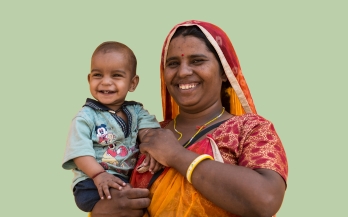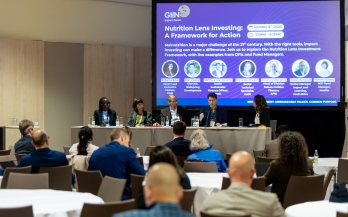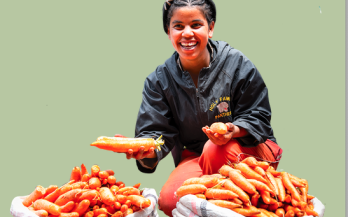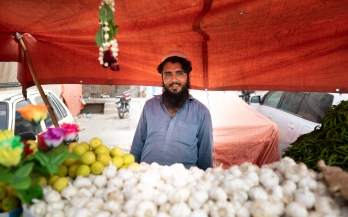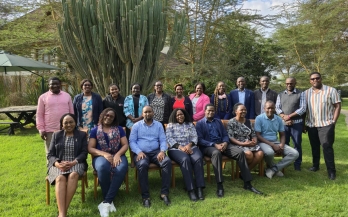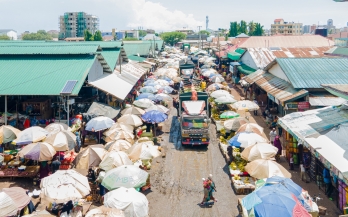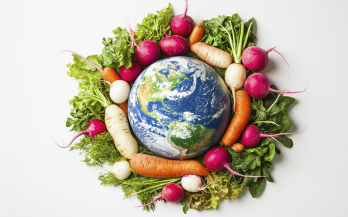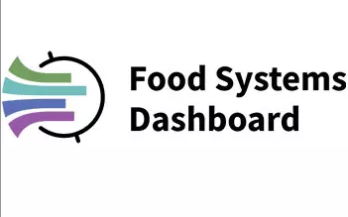Food choices play a dual role in shaping both human health and environmental sustainability. At the individual level, diets that lack diversity, fall short of essential nutrients, contain excessive amounts of foods high in sugar, unhealthy fats, and salt, or fail to meet food safety standards, and can have serious negative consequences for health (Institute for Health Metrics and Evaluation, 2025; World Health Organization, n.d.). At the same time, the ways food is produced and consumed affect the environment, —contributing to land degradation, freshwater depletion, climate change, and biodiversity loss (Crippa et al., 2021; Tilman et al., 2017). These environmental impacts, in turn, influence which foods are available, accessible, and affordable, and can alter the nutrient density of crops (Beach et al., 2019; Smith & Myers, 2018), reinforcing this close connection between our food choices and the environment.
Billions of people worldwide are malnourished. Despite our best efforts, the cost of a healthy diet and food insecurity continue heading in the wrong direction. Without significant intervention, this crisis will persist—but we believe artificial intelligence (AI) represents a powerful new tool to help change that trajectory.
Investing in nutrition isn’t just possible, it’s smart. That’s the key message that sticks with us a few weeks after the GIIN Impact Forum 2025, where we organised a session, “Nutrition Lens Investing: A Framework for Action”.
Moderated by Roberta Bove (GAIN), the discussion brought together a diverse mix of development financiers, fund managers, and impact practitioners to explore how investors can move beyond broad food security goals to intentionally target nutrition impact, focusing on the quality, not just the quantity, of food reaching consumers.
Smallholder farmers are the backbone of our food systems. Through small-scale agriculture, they contribute to economic development, provide jobs and livelihoods, and ensure food security for millions. Yet, despite producing 70–80% of the world’s food, many smallholder farmers remain impoverished and food insecure.
Each year, agricultural productivity declines as climate change intensifies. Smallholder farmers are among the most vulnerable groups to climate change because they rely heavily on rain-fed agriculture, cultivate marginal lands, and often lack access to the technical and financial support that could help them invest in better agricultural practices.
Many governments and organisations are addressing this crisis through climate-smart agriculture training, funding drought-resistant crops, early warning systems, resilient technologies and financial services. However, one crucial aspect remains overlooked: the nutrition and well-being of the farmers themselves.
Organisations working closely with smallholder farmers, whether through direct employment or value-chain partnerships, often focus on productivity interventions such as inputs, finance, and market access. However, the nutrition and well-being of the farmers who make these systems thrive are mostly neglected.
Local and traditional food retail markets are inherent in a city’s social fabric and the urban food environment. Millions of residents connect daily through food at local and traditional markets; and for many low income urban residents, this is their primary source of food.
Thousands of tons of fresh, dried and on ice produce flow into these retail and wholesale-retail hybrid markets, bought by consumers directly and/or by food-outlets, restaurants, and last mile vendors.
‘Ultra-processed food’ (UPF) has been the nutrition buzzword of the past few years, making its way from scientific research into headlines and policy debates. These foods, commonly defined as industrial food formulations made with ingredients rarely used in home cooking, make up a shockingly large share of diets and have been associated with various negative health effects – but their role remains complicated and contested. At the recent Stockholm Food Forum, I joined this debate, participating on a panel discussion on the topic.
In mid-September, 2025, stakeholders from across Kenya’s food, health, trade, and development sectors gathered at Sawela Lodges in Naivasha to review and revise the Draft National Food and Nutrition Security Policy (NFNSP).
The meeting, convened by the Ministry of Agriculture and Livestock Development with the support of the Food and Land Use Coalition (FOLU), the Global Alliance for Improved Nutrition (GAIN) and the World Resources Institute (WRI), saw participation from experts in agriculture, livestock, health, education, trade, arid and semi-arid lands, fisheries, and gender. This multi-sectoral gathering contributed to the ongoing comprehensive review of Kenya’s food and nutrition security policy.
As we prepare for the 2025 Global Forum (13 – 17 October) marking ten years of the Milan Urban Food Policy Pact, we're bringing insights from our work across Africa and Asia on how city governments and local food markets can transform urban food environments and wider food systems.
Walking through any bustling urban food market, from Pemba (Mozambique) to Arusha (Tanzania) and Bogor (Indonesia), is a remarkable experience. Beyond the offerings of fresh, dried, iced and frozen produce, spices, cooked traditional meals, and animated negotiations between vendors and customers, the experience of the market is at the nexus of food systems and nutrition policies and daily realities. These markets are about more than selling and buying food; they are where the future of food systems, within cities and across urban–rural landscapes, borders, and territories, is being lived, innovated, and imagined.
When we tell people we analyze the environmental and nutritional impacts of food, we're almost always met with the same question: “So, what should I eat?” It's a deceptively complex question that highlights one of the greatest challenges facing our food systems today—how do we nourish a growing global population while protecting the planet we all share?
This challenge has driven us at the Global Alliance for Improved Nutrition (GAIN) to develop a new approach that we're excited to share in our latest briefing paper, "Nourishing People and Planet: Enviro-Nutritional Insights into Local Foods for Policy, Programmes, and Industry."
Five years ago, fragmented food systems data made it challenging for stakeholders to take away meaningful insights for evidence-based decision-making. Today, the Food Systems Dashboard has transformed the data landscape and become an indispensable resource for food systems stakeholders worldwide, providing nearly 200,000 users with comprehensive, visual data and expert analysis that can help turn data into action and insights into impact.
